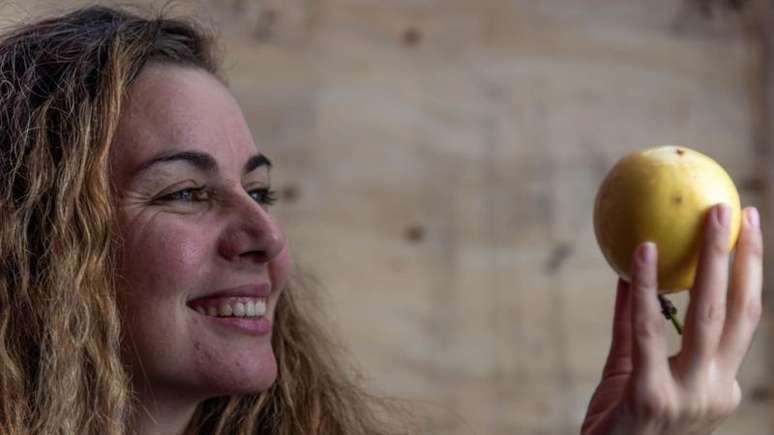The company completes ninety years of history in the country by investing in research and innovation to transform the health of millions of Brazilians
Johnson & Johnson, the world’s largest healthcare company, has been researching, developing and marketing healthcare products and solutions for more than 135 years. In Brazil, the company turns 90, strengthening its commitment to transforming the health of millions of Brazilians every day.
The celebration of ninety years in the country comes at a time of global evolution for the company, when it stops operating in the consumer products segment to dedicate itself exclusively to the other two segments of its business: pharmaceutical products and medical devices, both under the Johnson brand. &Johnson brand.Johnson.
The transition involved, in addition to updating the company logo, also changing the name of the pharmaceutical segment known, until now, as
Janssen for Johnson & Johnson Innovative Medicine. The company continues to lead the direction of medicine by applying science and knowledge to address the most complex diseases in the fields of Oncology, Hematology, Immunology, Neuroscience, Cardiovascular, Pulmonary Hypertension and Retina.
Johnson & Johnson MedTech works to solve the most pressing healthcare challenges with innovations that combine biology and technology, with its expertise in general surgery, orthopedics, cardiology and ophthalmology, to develop smarter, less invasive solutions and more personalized services.
Progress in healthcare in Brazil
Brazil managed to take a huge step towards rights and universal healthcare following the 1988 Constitution. With it, the country achieved globally recognized achievements, such as the creation of the Unified Health System (SUS) and of the National Health Surveillance Agency (Anvisa).
The health doctor Gonzalo Vecina, who was the first president of Anvisa, participated in the creation of these two bodies. Recalling the history of Brazilian healthcare, he illustrated the fundamental points that contributed to ensuring that the country guaranteed quality public healthcare to its population.
“With the Constitution, Brazil assumed that a modern society is a society in which rights are cultivated so that we have the possibility of obtaining social well-being as a result of public policies,” he says.
With this guarantee transformed into law, Brazil began to advance the debate on a universal, global and free system for the population. And it was in the midst of these debates that Vecina and other experts created the Unified Health System (SUS).
Federal Law 8.080 of 1990 regulated the SUS and created one of the largest public health systems on the planet. “This push to create a national health service has existed since the 1960s”, recalls Vecina.
“It is accompanied by the process of transformation of Brazilian society, which has occurred on the side of urbanization, the improvement of living conditions in cities, thanks to the issue of basic sanitation and health services and since the beginning of the vaccination process. So , as cities They begin to grow, they begin to take on care responsibilities”, explains the doctor, who was one of the creators of the SUS.
According to the Ministry of Health, 80% of Brazilians depend exclusively on the SUS for any healthcare. The entity provides vaccines and medical care, from primary care to more complex care, such as organ transplants. All for free.
Health check
Nearly a decade after the creation of SUS, in 1999, the country created Anvisa. The agency, linked to the Ministry of Health, is responsible for the health control of medicines, foods, cosmetics, national or imported. It is also Anvisa’s responsibility, after technical evaluation and efficacy and safety studies, to approve these products for both use and production in Brazil.
“There was a market that existed before the 90s, when the globalization process took place. And Brazil had a health surveillance that did not carry out factory inspections, the registration of products was exclusively written, bureaucratic. Suddenly, the country was caused by industrial transformation and globalization to take a new position”, explains Vecina.
“What we did was create a contemporary agency, adapted to its time. Today it is the only agency in non-core countries that is part of the select club of health surveillance agencies. Why? Because it has practices adapted to our time, in the sense of guaranteeing the safety of the products and services made available to the Brazilian population,” he says.
But it was not only in the field of public health that Brazil made progress in the 1990s. At the end of the decade, the law on health plans was created and, through specific legislation, users who were previously linked to providers only through specific contracts between the parties began to have rights and legal support, with rules on segmentation, hospitalization, coverage, urgent and emergency matters, waiting periods, reimbursements, readjustments, terminations, among other topics. Following the law, shortly thereafter, in 2000, the country created the National Supplementary Health Agency (ANS), a regulatory agency responsible for supervising operators and regulating the market.
“The law on the health plan was published only in 1998, ten years after the 1988 Constitution. This is an important milestone, because the SUS was created two years later, in the 1990s. It took more than eight years of negotiations to finalize a created law that regulates private health plans”, explains Dr. Adriano Massuda, professor and member of FGVsaúde.
According to the Ministry of Health, approximately 50 million people in Brazil have private healthcare plans. And the creation of the ANS responds to the need to monitor the rights of plan customers.
“The ANS was needed to regulate this law. The ANS has a role that begins with financial monitoring of health plan providers, so that those who purchase a plan know whether the provider will be able to offer this service in the future , because you are not buying something that you will consume now, you are buying insurance that you will have to consume in the future,” adds Massuda.
Source: Terra
Ben Stock is a lifestyle journalist and author at Gossipify. He writes about topics such as health, wellness, travel, food and home decor. He provides practical advice and inspiration to improve well-being, keeps readers up to date with latest lifestyle news and trends, known for his engaging writing style, in-depth analysis and unique perspectives.




![Tomorrow we belong to: What awaits you in the episode of 1946, 1946, May 19, 2025 [SPOILERS] Tomorrow we belong to: What awaits you in the episode of 1946, 1946, May 19, 2025 [SPOILERS]](https://fr.web.img3.acsta.net/img/57/e3/57e3079eff5f0a4878871c2512d436ee.jpg)

